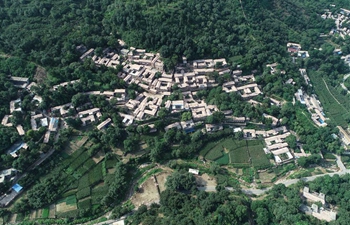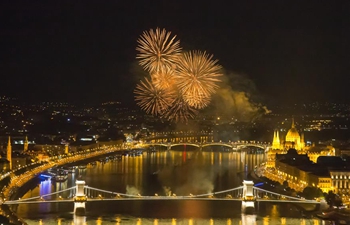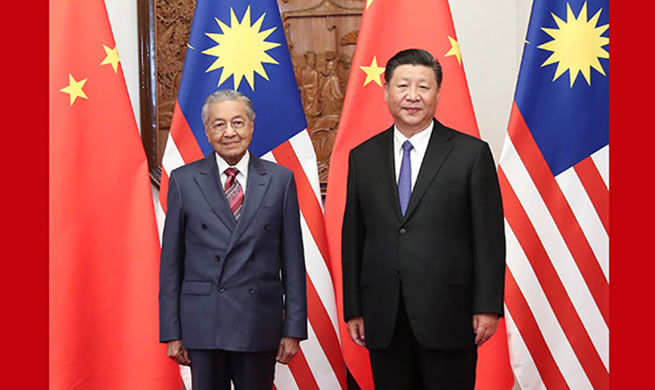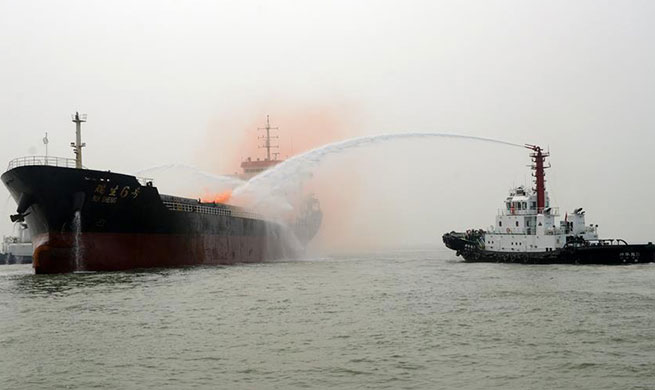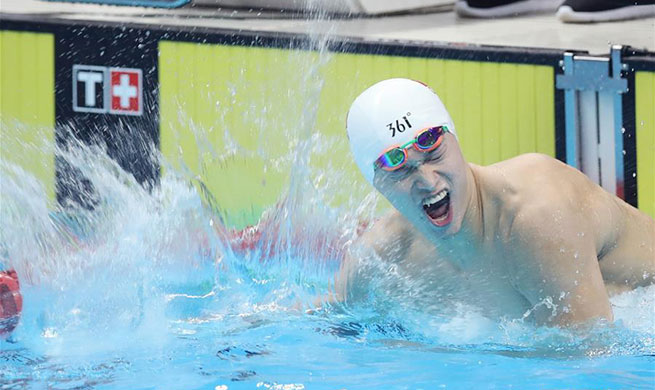BERLIN, Aug. 21 (Xinhua) -- The German government said Tuesday it wanted a new alternative pipelines network constructed to transport Caspian natural gas supplies via Turkey to Europe on Tuesday.
"We have a significant interest in further developing the South corridor," (as opposed to the Norther corridor for gas deliveries between Russia and Europe, note), a government spokesperson told press ahead of an upcoming visit of German Chancellor Angela Merkel to the Caucasus republics of Azerbaijan, Georgia and Armenia.
For several years, the European Union (EU) has mulled the possibility of connecting European gas networks to the Turkmenistan-Afghanistan-Pakistan (TAP) and Trans-Anatolian Natural Gas Pipeline (TANAP) routes which are currently being constructed. "This is part of the diversification strategy of the EU to access gas from regions other than Europe," the spokesperson explained.
In spite of a diplomatic row sparked by Azerbaijan's refusal to allow one member of Merkel's official delegation to enter the country, the federal government reiterated that the chancellor would travel to Baku on Tuesday as previously scheduled. The spokesperson described Azerbaijan as a country of high geo-political significance for global energy supply, but noted that Berlin was also open to importing natural gas from other countries such as Turkmenistan, Iran, and Iraq.
Although the exact route of any eventual Transcaucasian pipeline is still unclear, an outstanding agreement must first be secured between five states located around the Caspian Sea in order to develop the necessary infrastructure for a southern corridor between Europe and the resource-rich region. Additionally, the volumes of natural gas which can be transported along the TAP and TANAP pipelines remain substantially below that of the existing Nord Stream pipeline which already provides a direct link between Russia and Germany via the Baltic sea.
The United States has repeatedly spoken out against the Nord Stream 2 pipeline currently under construction -- a second Russian-German energy project through the Baltic -- as allegedly being politically-motivated and devoid of economic value. Nevertheless, German business leaders so far remain steadfast in their support of the pipeline, which was first proposed in 1995.
Replying to criticism from U.S. President Donald Trump, the East Committee of the German Economy (Ost-Ausschuss) recently warned Berlin against backtracking from Nord Stream 2 in response to pressure from Washington.
"Nord Stream 2 is a project of European energy companies based on a clear economic calculation: the routes to the new production areas in North Siberia are shorter and the transport costs are lower," a spokesperson for the organization said.


